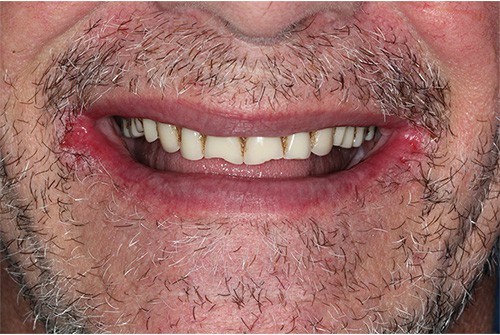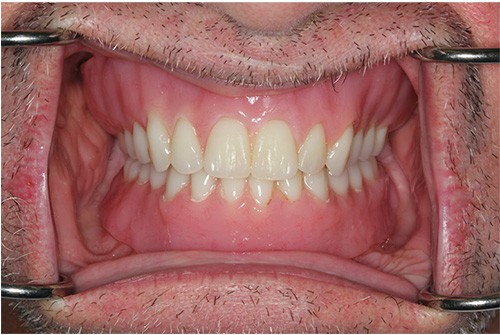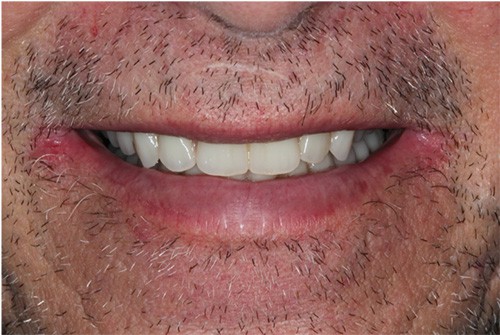Affordable Snap-On Dentures:
What to Expect.
An implant over-denture is a type of denture that is securely anchored by placing dental implants into the jawbone. This method offers superior protection and support compared to conventional dentures. Snap-on dentures are a specific type of implant-supported denture. They feature special fittings that allow them to snap-in to the dental implants placed by your dentist, ensuring a secure and comfortable fit. This approach provides numerous benefits, including enhanced stability and improved function.
Advantages of Implant-Supported Snap-On Dentures
Snap-on dentures offer several advantages over traditional dentures:
- Enhanced Stability: Securely anchored with dental implants, providing superior stability compared to conventional dentures.
- Improved Speech Clarity: Implant-supported dentures enhance speech by providing a secure fit.
- Natural Appearance: Designed to look and feel like natural teeth.
- Reduced Gag Reflex: Special fittings reduce the gag reflex commonly associated with traditional dentures.
- Better Nutritional Intake: Improved stability enhances chewing efficiency, promoting a healthier diet.
- Fewer Sore Spots: The secure fit minimizes discomfort and sore spots.
- Increased Jawbone Retention: Implant support helps preserve bone structure and prevent bone loss.
- Easier Maintenance: Simple to clean and maintain compared to traditional options.
- Cost-Effective Solution: Offers a durable and long-term solution for tooth replacement.
Types of Dental Implant-Supported Over-Dentures
Types of Implant-Supported Over-Dentures include:
- Implant-Retained, Gum-Supported Over-Dentures: These dentures rest on the gums and are anchored by implants in your jaw. They are removable and securely attached by the implants.
- Bar-Retained, Implant-Supported Over-Dentures: Connected to a metal bar with attachments to implants, this type is also removable and secured by the bar.
- Fixed, Implant-Supported Over-Dentures: Permanently attached to the implants, these dentures are removed only by a dentist and offer a near-natural appearance.
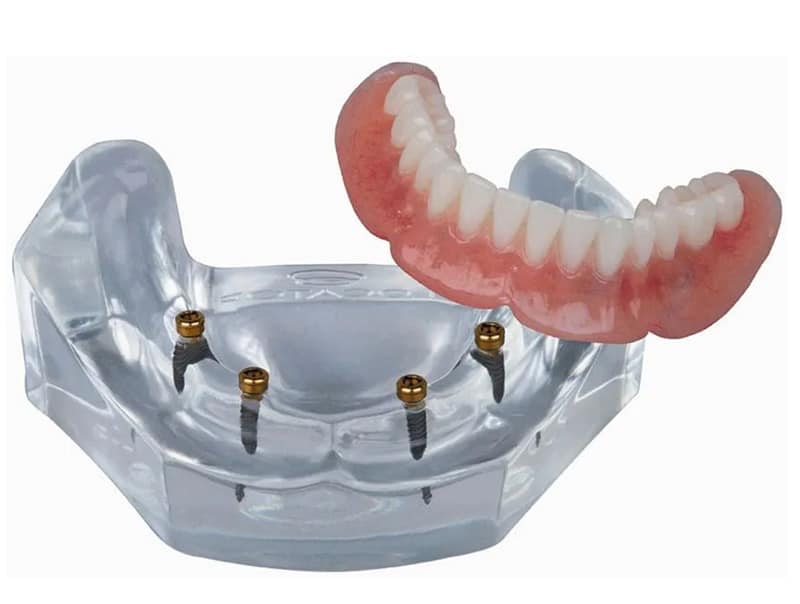
Procedure for Snap-On Dentures
The snap-on denture placement process includes the following steps:
- Implant Placement Procedure: After tooth removal and necessary treatments, dental implants are placed into the jawbone. These implants remain in place for 4-6 months to integrate with the bone (osseointegration).
- Post-Treatment Consultation: An initial post-operative consultation is scheduled the day after surgery to examine the mouth, check for infections, and assess the fit of the snap-on dentures.
- Soft Liners: Cushioning agents are applied inside the dentures to improve fit and comfort while aiding in healing.
- Implant Uncovering: A minor surgical procedure is performed to uncover the implants, and a healing abutment is placed to promote healthy gum tissue growth.
- Attachment of Implants to Dentures: The abutments are adjusted, and the dentures are connected to the implants. This process is typically completed within one day but may occasionally take longer.
7 Advantages of Implant-Supported Dentures Over Conventional Dentures
Implant-supported dentures provide several advantages over traditional dentures:
- Enhanced Stability: Anchored in the jawbone, offering superior stability.
- Improved Chewing Efficiency: Better stability improves chewing power.
- Better Nutrition: Enhanced chewing capability promotes a balanced diet.
- Increased Confidence: Reduced risk of denture slippage boosts confidence.
- Enhanced Functionality: Supports speech, smiling, and social interactions.
- Improved Quality of Life: Better stability and function contribute to a higher quality of life.
- Greater Comfort: Less coverage of the mouth reduces discomfort and gag reflex.
Drawbacks of Conventional Dentures
Traditional dentures come with several drawbacks:
- Reduced Chewing Efficiency: May compromise chewing power.
- Nutritional Deficiencies: Can lead to difficulty in chewing, affecting nutrition.
- Discomfort: Often causes discomfort due to fit and bulk.
- Increased Bone Loss: Do not stimulate the jawbone, leading to bone loss over time.
- Heightened Gag Reflex: Bulkiness can increase gagging.
- Social Embarrassment: Risk of shifting or discomfort can cause embarrassment during speaking or eating.
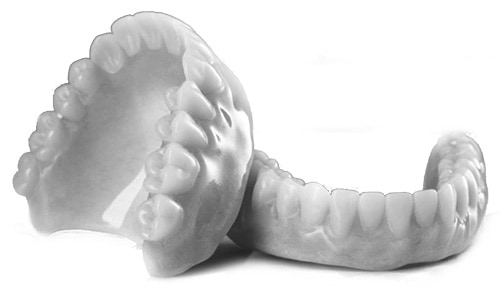
Before/After Snap on Dentures
From Our Real Patients
